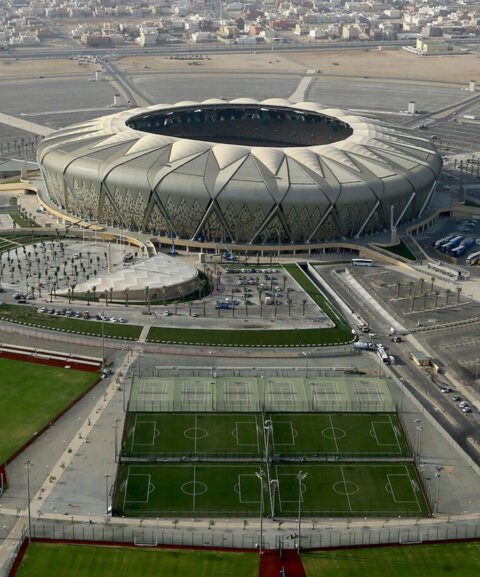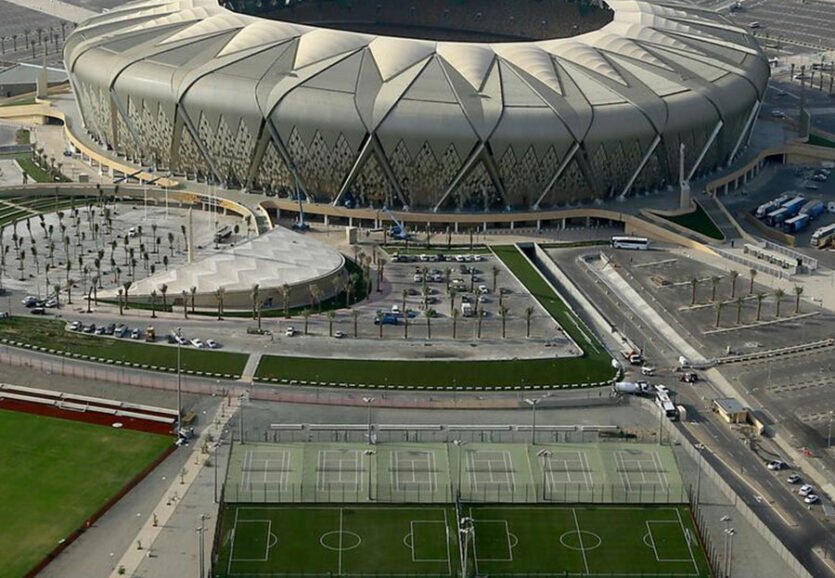Integrating Sustainability in Saudi Sports Infrastructure

Issues
Our client aimed to integrate sustainability into Saudi Arabia’s sports infrastructure, ensuring that new and existing sports facilities aligned with Vision 2030’s environmental goals. The challenge was to balance eco-friendly initiatives with operational efficiency, cost-effectiveness, and international compliance. Many sports venues faced high energy consumption, water usage, and carbon emissions, while waste management and sustainable construction practices were still evolving in the sector. Additionally, ensuring that sustainability efforts did not compromise fan experience, athlete performance, or event logistics was a key priority.
Solution
A strategic framework was developed to enhance environmental sustainability in sports infrastructure, focusing on energy efficiency, water conservation, green building materials, and carbon footprint reduction. The approach integrated global best practices, smart technology, and regulatory compliance to create a sustainable sports ecosystem that supports long-term operational efficiency and environmental responsibility.
Approach
- Green Building Certification & Compliance: Evaluated sports venues for LEED (Leadership in Energy and Environmental Design) and ISO 14001 compliance, ensuring facilities met global sustainability standards. Recommended eco-friendly architectural designs, smart lighting, and solar panel integration.
- Energy-Efficient Sports Venues: Developed energy optimization strategies incorporating LED lighting, automated energy management systems, and solar-powered stadiums to reduce overall consumption. Advised on the adoption of wind and geothermal energy solutions where feasible.
- Water Conservation & Recycling: Implemented rainwater harvesting systems, greywater recycling, and water-efficient irrigation for sports fields and landscaped areas. Designed low-water-use sports facilities, including innovative cooling systems for indoor venues.
- Sustainable Construction & Materials: Encouraged the use of recycled and locally sourced materials, along with modular construction techniques to reduce environmental impact and construction waste. Promoted the use of biodegradable turf and eco-friendly seating materials.
- Waste Management & Zero-Waste Stadium Initiatives: Developed recycling and composting programs, including plastic-free stadium policies, digital ticketing systems, and waste separation programs to minimize landfill contributions.
- Carbon Offset Programs for Major Events: Designed green transportation solutions, including shuttle buses powered by renewable energy and improved public transit options for large-scale sporting events. Recommended carbon offset initiatives, such as tree planting programs tied to ticket sales.
- Smart Stadium & Digital Integration: Integrated IoT-based monitoring systems for tracking energy and water usage, allowing real-time sustainability adjustments. Developed AI-driven analytics for predictive maintenance, ensuring long-term operational efficiency.
- Sustainability Awareness & Community Engagement: Implemented educational programs and sustainability awareness campaigns to promote eco-friendly fan behavior, including incentives for public transport use and waste reduction programs at events.
Recommendations:
- Expand investment in solar and wind energy projects to power major sports venues.
- Implement circular economy initiatives by repurposing materials from decommissioned stadiums and recycling sports equipment.
- Develop sustainability guidelines for new sports infrastructure projects, ensuring energy-efficient design and carbon-neutral construction practices.
- Strengthen collaboration with green technology companies and sustainability-focused organizations to drive continuous innovation in eco-friendly sports facility management.
- Introduce incentives for eco-conscious sponsors, including branding opportunities for companies investing in sustainability initiatives.
- Adopt smart mobility solutions, such as electric vehicle charging stations, bicycle-friendly routes, and carbon-neutral travel incentives for fans attending events.
Engagement ROI
The integration of sustainability in Saudi sports infrastructure resulted in:
- Reduction in Energy Costs: Smart energy management systems lowered electricity consumption in stadiums, leading to cost savings and improved efficiency.
- Lower Environmental Impact: The use of solar energy, water recycling, and eco-friendly building materials significantly reduced the carbon footprint of sports facilities.
- Increased Global Recognition: Sustainable stadiums positioned Saudi Arabia as a leader in green sports development, attracting international tournaments and sponsorships.
- Improved Fan Experience & Engagement: Digital sustainability initiatives, such as smart ticketing, waste-free event strategies, and eco-conscious stadiums, enhanced spectator engagement and environmental awareness.
- Stronger Investment & Partnership Opportunities: Sustainability-focused sports infrastructure attracted international investors, eco-conscious brands, and government incentives, driving long-term industry growth.

